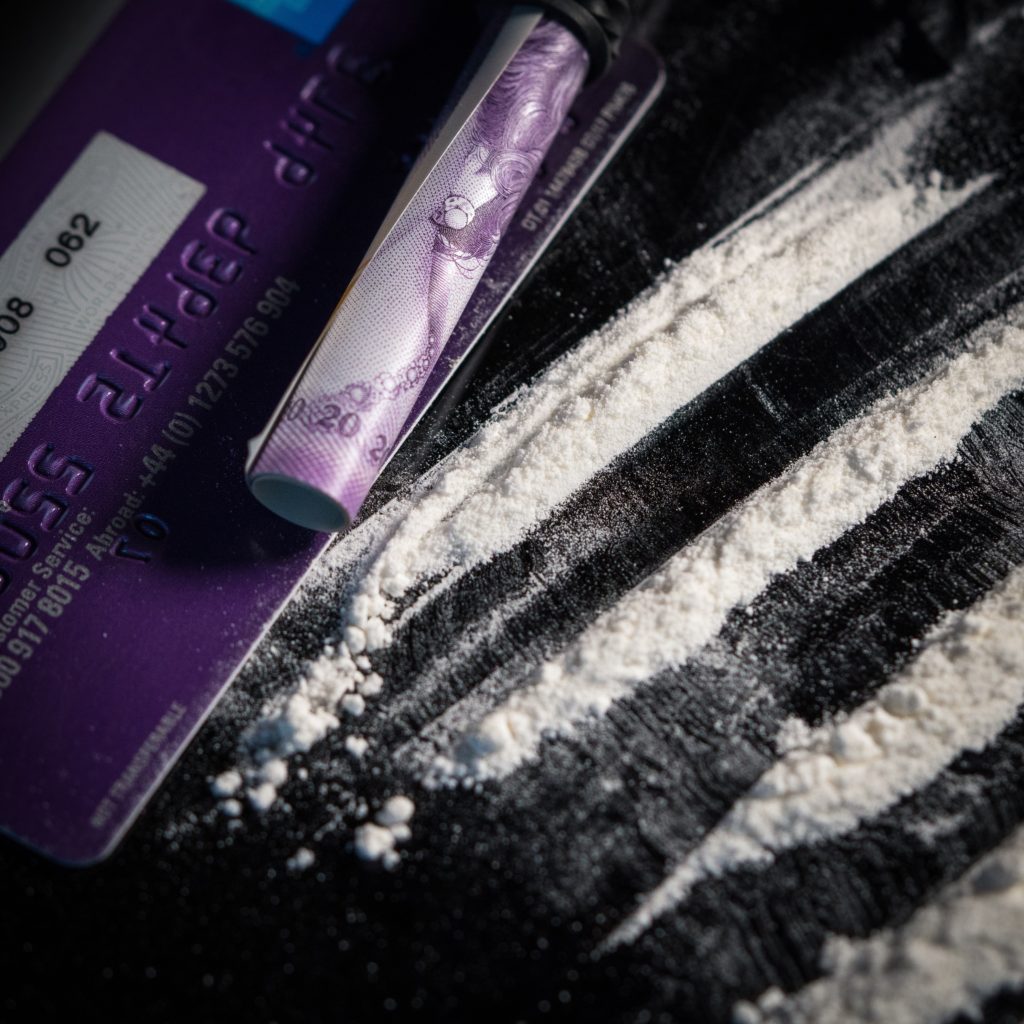What Is Speed?
Speed drug is a type of amphetamine. It is a central nervous system stimulant that causes high levels of dopamine to be released. Dopamine is a brain chemical associated with pleasure and reward. There are different types of amphetamines. Some are prescribed by doctors to treat medical conditions such as narcolepsy (an uncontrollable urge to sleep) or ADHD. Others, including speed, are produced and sold illegally. Other forms of illicit amphetamine are base and crystal meth (ice) — the most potent form.
Speed drug powder can range in color from white to brown and may contain traces of grey or pink. It has a strong smell and bitter taste. It can also come as pills. It can be swallowed, injected, smoked, or snorted. It is also known as up, uppers, louee, goey, whiz, and rack.
People who become addicted to the speed drug can experience severe and long-term, physical and psychological health problems. Recovering speed drug addicts are at risk of developing cardiovascular complications, skin infections, tooth decay and loss, and problems with perception. Withdrawing from speed can trigger psychosis, paranoia, and delusions in the user. Long-term speed abuse can lead to permanent memory problems and issues with emotional regulation.
Current studies estimate that over half a million U.S. adults use speed every week. People abuse speed because it increases dopamine, energy levels, and focus. People who have demanding jobs are suffering from an underlying condition that slows them down, or who are pressured at school, are at risk of developing a speed addiction.

People who are addicted to prescription speed may doctor shop or steal their friends’ and family members’ prescriptions. Meth addicts will display a lot of outward signs of addiction, such as itching, dental issues, and scabs and scratches. Meth also leaves a distinct smell, and people who are addicted to it will use pipes and other tools to smoke, snort, or inject the substance. Quitting speed is one of the best decisions an addicted person can make for their health. But, stopping without help can be as dangerous as the addiction itself. Speed drug withdrawals and timelines can last a long time and vary in intensity.
Speed Drug Effects
The effects of the speed drug are felt immediately if the drug is injected or smoked, or within half an hour if snorted or swallowed. They last up to 6 hours, depending on the dose. Speed can make people feel ‘pumped’ and happy. They may have an energy boost, feel more alert and be more talkative.
It can also cause unwanted side effects, such as:
- Fast heart rate and breathing
- Increased blood pressure
- Loss of appetite
- Increased sex drive
- Jaw clenching and teeth grinding
- Large pupils
- Nausea and vomiting
- A dry mouth
- Nervousness, anxiety, and paranoia
Coming down can take days. You might experience poor sleep and exhaustion, headaches, dizziness, confusion, increased appetite, aches and pains, exhaustion, vivid dreams and nightmares, anxiety, hallucinations or paranoia, or depression while you’re coming down.
Speed can affect people differently based on:
- How much they take
- How strong it is
- Their size, height, and weight
- Whether they are used to taking it
- Whether they take other drugs at the same time
Speed Drug Dangers Of Abuse
It is possible to overdose on speed if you have a large amount or a strong dose. The signs of an overdose are:
- Racing heartbeat
- Fits
- Passing out or breathing difficulties
- Chills or fever
- No urine output
- Arching the back
- Convulsions
An overdose can lead to stroke, heart attack, or death. If you think someone has overdosed on speed, call for an ambulance right away.
Speed binges are also linked to reckless and aggressive behavior. High doses and frequent use of speed can create amphetamine or speed psychosis. It’s very similar to paranoid schizophrenia, with symptoms of hallucinations, and out-of-character violent and aggressive behavior. There are lots of mental health issues linked to using speed. Most of them are associated with coming down after taking speed, or long-term use. They include:
- Depression and anxiety
- Difficulty sleeping
- Paranoia, hallucinations, and confusion
- Irritability, mood swings, and panic attacks
- Problems with memory and concentration
- Violent behavior
Taking speed with alcohol can increase heart rate and blood pressure. Taking with it opioids or antidepressants can cause an irregular heartbeat or seizures.
Speed Drug Long Term Effects
People who take speed for long periods can lose weight, get heart and kidney problems, develop dental problems, have a stroke, and increase their risk of contracting HIV and hepatitis infections. Sometimes heavy users develop psychosis that usually goes away when they stop taking the drug. As well as physical and mental health issues, users risk social, work, and financial problems. Regular use of speed can be expensive, and bring problems to work and relationships.
Speed Drug Addiction
Over time it is possible to become tolerant to speed, meaning people need more of the drug to achieve the same effects. People can also become dependent on speed, meaning they spend a lot of time and energy thinking about it and trying to get it. Kicking the habit can be difficult, but most withdrawal symptoms settle down after a week and then gradually disappear. During this time people might:
- Crave the drug
- Feel very hungry
- Feel confused and irritable
- Feel exhausted
- Have trouble sleeping
- Feel anxious, depressed, and paranoid
- Have some aches and pains
Speed Drug Withdrawal
Speed Drug Withdrawal Timeline
Speed withdrawal symptoms can occur in as little as six hours after last use. Depending on how long someone has been addicted and how much speed they’ve abused will affect the intensity and duration of withdrawals. Over the next two to ten days after cessation, physical withdrawal symptoms will peak and then taper off. Emotional symptoms, however, can linger for weeks, months, or even years in some cases. Sudden cessation can intensify speed withdrawal symptoms and also puts people at risk of developing long-term emotional withdrawal issues.
Physical Symptoms Of Speed Drug Withdrawal
- Aches and pains
- Stomach upset
- Fatigue
- Problems sleeping
- Slowed movements or speech
Psychological And Emotional Symptoms Of Speed Drug Withdrawal
The psychological or emotional symptoms of amphetamine withdrawal are incredibly intense and unpleasant for the person in recovery. Symptoms include the following:
- Vivid and unpleasant dreams
- Anxiety
- Irritability
- Depression
- Problems functioning socially
Studies indicate that the most common psychological withdrawal symptoms are irritability at 78%, depressed mood at 50%, and problems with social functioning at 48%.
The Difference Between A Cold Turkey Detox Or A Medically Supervised Detox
A cold-turkey detox means the individual suddenly quits taking a drug or substance. When someone becomes addicted, a physical and emotional dependence has taken hold. Without the drug, a person will experience sudden and intense withdrawal symptoms because the body and brain are going without a substance they’ve come to rely on to function. Abrupt, cold-turkey cessation, therefore, can and will trigger intense and possibly dangerous withdrawal symptoms.
During medically supervised detox, patients aren’t encouraged to quit cold turkey because of the risks involved. Instead, patients are given decreasing doses of the drug, so the brain and body don’t go into shock while the patient tries to beat the addiction. A medically supervised detox center will give the patient decreasing doses of the drug and also keep them safe and away from harmful outside influences that can hamper their attempts at recovery.
Also, most people who become addicted to drugs are suffering from an underlying, comorbid mental health condition. Almost half of all people who enter rehab are also diagnosed with a mental health problem that is making their drug addiction worse. In many cases, people will self-medicate with drugs or alcohol when they are suffering from untreated mental disorders. A medically supervised detox center can adequately diagnose a patient with a comorbid condition and treat the issue safely. By addressing the comorbid condition, patients are at lower risk of going through a relapse once they leave the detox and rehab center.

When referring to illegal speed, methamphetamine, the risks of long-term withdrawal symptoms causing permanent health issues are more considerable. Methamphetamine can cause the user to experience long-term problems with memory and depression after they quit taking the drug. Legal speed, such as medications used to treat ADD, narcolepsy, and obesity, do not come with such risks.
Treatment for Speed Drug Addiction
The longer someone takes speed, and the higher the dosage, the more severely dependent on the drug they are likely to be. A high level of dependence means that withdrawal will be difficult. Withdrawal symptoms are optimally managed through a medical detox regime like that provided in a comprehensive treatment program. There are no specific medications designed to treat speed drug addiction; however, some medications can help manage specific symptoms of withdrawal like those that address depression, anxiety, and tremors.
It is important to stay vigilant and for an individual to remain in an addiction treatment program for long enough to form healthy habits, allow new brain connections to form, and learn relapse prevention techniques to control cravings.
Behavioral therapies are usually considered the ideal form of treatment for speed addiction, according to the National Institute on Drug Abuse. Cognitive Behavioral Therapy (CBT) for addiction uses both individual and group sessions to teach stress management, coping tools, communication, and other life skills to maintain abstinence and improve thinking and behavior patterns overall.

Another form of behavioral therapy used for meth and stimulant addiction is one that uses motivational incentives, or contingency management, as a method to maintain sobriety. With this program, individuals are rewarded for clean drug tests, and this can help to boost treatment compliance and the motivation to continue to remain drug-free.
Support groups can connect individuals with peers who can relate to what they are going through and offer hope, encouragement, and tips on remaining abstinent. Family therapy, counseling, and educational programs can all help to promote a lasting recovery as well.
Reclaim Your Life From Speed Drug Addiction With Dual Diagnosis Rehab Washington
Speed drug addiction is a serious condition that can cause serious health, social and economic problems that should not be taken lightly. We Level Up dual diagnosis rehab Washington can provide you, or someone you love, the tools to recover from speed drug addiction with professional and safe treatment. Feel free to call us to speak with one of our counselors. We can inform you about this condition by giving you relevant information. Our specialists know what you are going through. Please know that each call is private and confidential.
We Level Up Washington Mental Health Center: Primary Mental Health Treatment with Secondary Co-Occurring Treatments
The We Level Up Washington primary mental health center stands ready to help. Offering secondary treatment programs for underlying conditions like Speed addiction that frequently fuels harmful behaviors. Taking that first step to get the professional support you need can be life-transforming.
We know how mental health disorders and secondary co-occurring substance abuse diagnoses directly affect one another. The We Level Up Washington treatment center provides recovery programs through science-based mental health treatments that can help you feel better. Call us now for a free mental health evaluation!
Inpatient medical detox and residential primary addiction treatment may be available at affiliated facilities at other We Level Up Treatment Centers locations beyond the Washington treatment facility.





